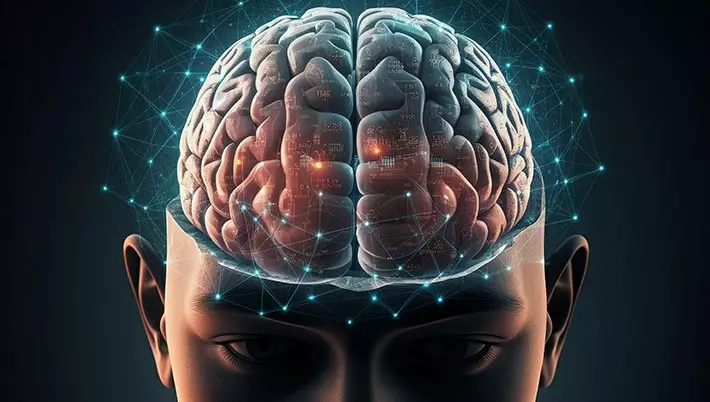Health professionals have been vocal about their worries that excessive gaming might cause addictive behaviors. In addition, there’s research that shows that people who spend a large percentage of their time playing are less physically active which, in turn, leads to weight gain and other physical ailments associated with a lack of exercise. Some researchers have even linked excessive gaming with aggressive behaviors.
However, recent studies indicate that gaming also offers benefits that extend beyond entertainment. Playing any type of game -- video games, physical games and Grande Vegas online casino games can actually improve cognitive functioning, promote cognitive resilience and support brain health. Regardless of whether you play free games, play in competition or through social networking or play real money games you might find that your gaming pastime offers real health rewards.
Games and Mental Health
The games themselves are not good or bad for our mental health. Everything depends on how we use the games. If you don’t limit your gaming activities to the time that’s been set aside for entertainment, you might find that your gaming activities complicate your life. But if you play responsibly, not only can you enjoy a relaxing gaming event but you might also find that, in other areas of your life, you’re more alert, more focused and better able to successfully complete tasks.
Some ways that gaming can enhance your brain health include:
Cognitive Skills
Many of today’s online games are designed to challenge the brain in a variety of ways. Playing these games can improve your ability to concentrate because during the game, you need to focus on various stimuli while you ignore distractions.
If you’re playing fast-paced games you will become used to the need to quickly shift your attention between multiple elements. The games, which often involve complex storylines, enhance memory and recall. Real money games may involve the need to strategize test hypotheses as you find yourself required to analyze information and predict possible outcomes.
If you’re playing a game with symbols you might find yourself navigating virtual spaces which improves spatial orientation and the ability to visualize and manipulate objects mentally. Some games, that require quick reflexes, teach you to respond more quickly to visual and auditory stimuli.
Gaming often involves multitasking so, as you enhance your multi-tasking skills in the gaming world, you might find that those skills are also enhanced in the real world. When you play games you are often required to make decisions under pressure, an important real-world cognitive skill that can prove valuable in stressful real-life situations.
Emotional Health
Many gamers report that their overall emotional health has been enhanced by their gaming activities. For people who play games where linked jackpots, linked leaderboards and tournament play is involved, the social aspect of the gaming encourages increased social connectivity and emotional resilience.
But the main way that gaming enhances emotional health is….simple relaxation. Gamers generally find that gaming is an effective way to de-stress. When you immerse yourself in a game world, even for a short time, you reap the benefits of reduced anxiety and a healthy escape from the “real world.”
Cognitive Decline
For decades, gerontology specialists have been advising older adults to do crossword puzzles as a way to slow cognitive decline. It turns out that many different types of gaming have the same effect. As cognitive decline slows, brain health and functionality increase.
Individuals who are at risk for cognitive decline, or who are already experiencing some measure of cognitive decline, find that, through gaming, they enjoy better memory retention, reaction time and reasoning.
Hand-Eye Coordination and Reaction Time
Gamers experience better hand-eye coordination and reaction time due to gamers’ need to connect between their eyes, hands and brain. According to game researchers, players who are able to react quickly during the gameplay are more successful at their games so it’s a skill that is valued among gamers who work to enhance this skill. Surgeons have been known to play games online in an effort to enhance their reaction times.
Things to Watch Out For
Even with all the cognitive benefits that gaming offers, gamers should be aware that prolonged or excessive gaming can be detrimental. When you play games, be sure that you set limits using alarms or apps so that you don’t game excessively. Take regular breaks so that you don’t strain your eyes or reduce your focus. Casino observers suggest that you schedule a break once an hour.
Avoid multi-tasking – don’t play while you’re doing something else. If you multi-task in this way, neither of the tasks that you’re doing will enjoy the priority that they deserve.
Game socially as much as possible. It’s easy to get lost in solo gaming but when you play a game where you’re in competition with other players (via leaderboards, progressive jackpots or tournament play), you’ll be better able to balance gaming with the real world.
Set goals outside of gaming. Balance gaming by setting goals for things you want to achieve in other areas of life so that you keep your gaming pastime in perspective as only one of many activities that you enjoy.
Be aware of signs of gaming addiction. If gaming interferes with your daily responsibilities, if you feel irritable when you’re not gaming or you are losing interest in other activities, you might be developing a gaming addiction. Keep your gaming hobby in moderation so that you can enjoy cognitive development, emotional well-being and social connectivity.


